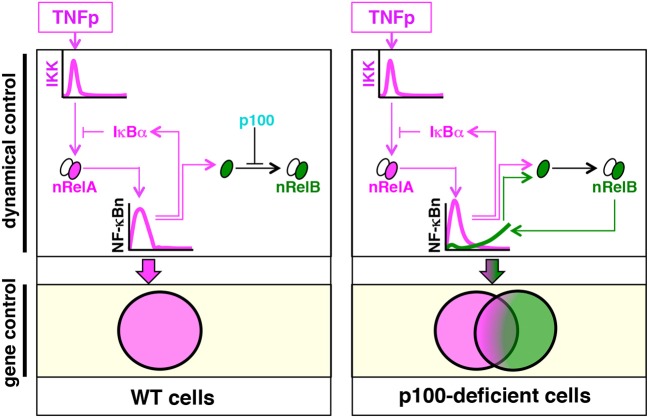Figure 9.
The proposed model explaining the role of p100 in the dynamical control and the gene expression of specificity of TNF-induced NF-κB signaling. Brief TNF stimulation elicits transient NF-κB activity composed of RelA:p50 heterodimers, which mediate the expression of immune response genes. An absence of p100 triggers a late RelB:p50 NF-κB activity in response to TNF that induces also the expressions of genes involved in metabolic and cellular differentiation processes.

